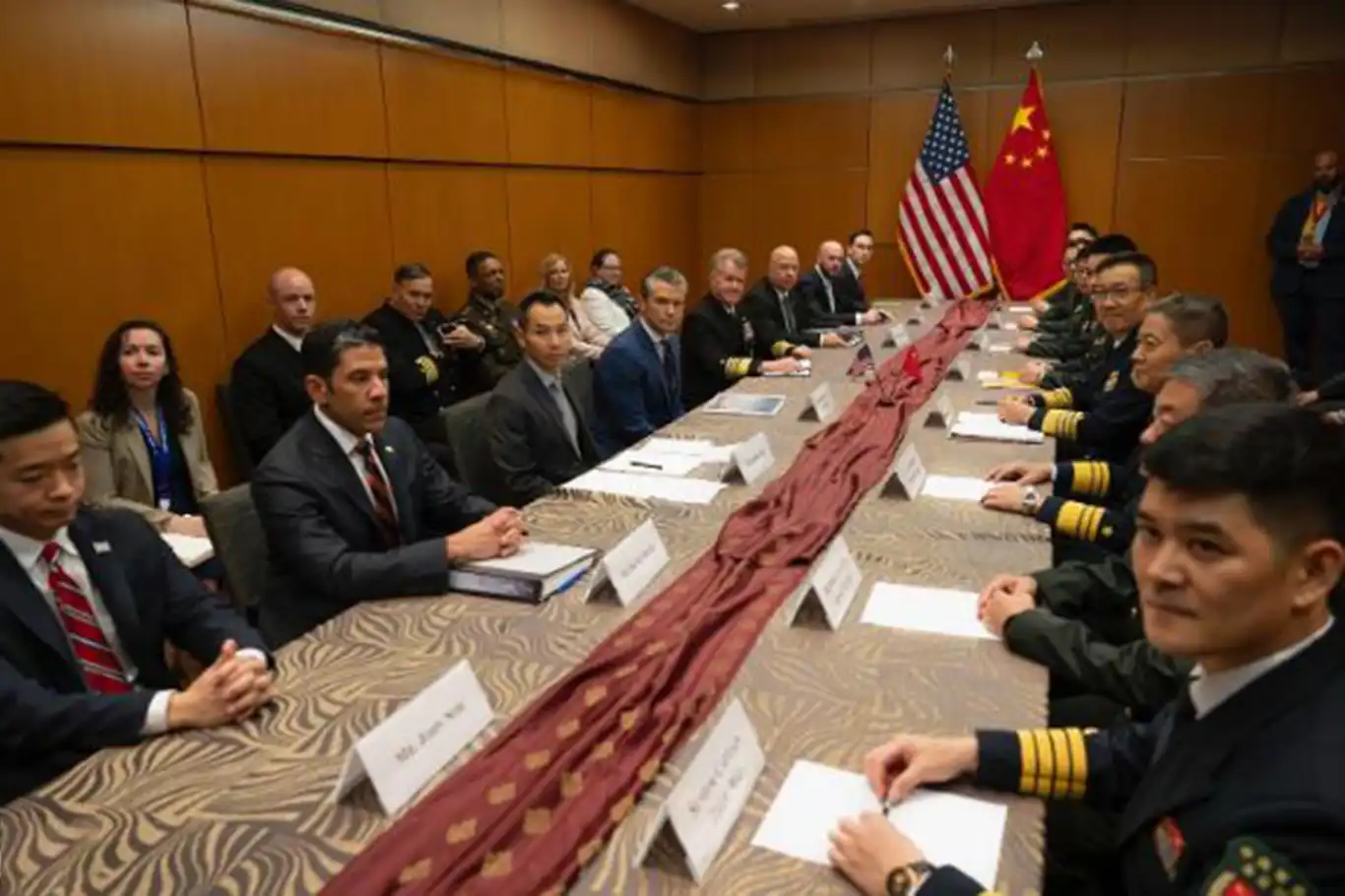U.S. and China agree on military communication channels to reduce tensions


The United States and China have agreed to establish direct military-to-military communication channels to prevent conflicts and reduce tensions, following a “historic” meeting between U.S. President Donald Trump and Chinese President Xi Jinping in Busan, South Korea.
U.S. Defense Secretary Pete Hegseth announced on Saturday that he and Chinese Defense Minister Dong Jun reached an agreement to create new lines of communication aimed at “deconflicting and de-escalating any problems that arise.” The discussions followed a phone call on Friday and a meeting on the sidelines of the ASEAN Defense Ministers’ summit in Kuala Lumpur, Malaysia.
“Admiral Dong and I also agreed that we should set up military-to-military channels to deconflict and de-escalate any problems that arise. We have more meetings on that coming soon,” Hegseth wrote on X. He added that both sides agreed “peace, stability, and good relations are the best path for our two great and strong countries.” Beijing did not immediately comment on the announcement.
The agreement marks a step toward restoring defense ties that have remained fragile for years. Military communication between Washington and Beijing largely broke down after China suspended contact in 2022, following then-U.S. House Speaker Nancy Pelosi’s visit to Taiwan. The suspension came amid growing maritime tensions in the South China Sea and Taiwan Strait. U.S. officials have warned that the absence of crisis hotlines increases the risk of accidental escalation, given the proximity of U.S. and Chinese forces across the Asia-Pacific.
The new defense understanding follows the Trump-Xi summit in Busan, where the two leaders agreed to take several steps to reduce tensions. President Trump announced that U.S. tariffs on Chinese goods would be reduced from 57% to 47%, while China pledged to maintain the supply of rare earth metals vital to American industries. Trump also said he would visit China in April, with Xi expected to travel to the U.S. shortly afterward.
Hegseth described the summit as setting the tone for “everlasting peace and success” between the two countries.
While in Kuala Lumpur, Hegseth met with defense ministers from Australia, Japan, and the Philippines to discuss “increased deterrence and readiness” in the South China Sea. He called on Southeast Asian nations to strengthen maritime capabilities and criticized China’s unilateral actions, including its declaration of the Scarborough Shoal as a “nature reserve,” which the U.S. sees as an attempt to expand territorial claims.
Hegseth also urged ASEAN to finalize the long-delayed Code of Conduct with China to regulate behavior in disputed waters and proposed creating a shared maritime surveillance and rapid-response network to deter provocations.
The Chinese Ministry of National Defense stated that Minister Dong emphasized that the reunification of China and Taiwan is an “unstoppable historical trend” and called on Washington to act cautiously regarding the Taiwan issue. Dong reiterated that China remains committed to peaceful development while “resolutely safeguarding its national security interests,” and that it “possesses the full capability to respond calmly to any infringements or provocations.”
The U.S.-China agreement on military communication channels represents a significant step toward reducing tensions and preventing accidental conflict between the two global powers in a region fraught with strategic challenges. (ILKHA)
LEGAL WARNING: All rights of the published news, photos and videos are reserved by İlke Haber Ajansı Basın Yayın San. Trade A.Ş. Under no circumstances can all or part of the news, photos and videos be used without a written contract or subscription.
The long-awaited Grand Egyptian Museum (GEM) officially opened its doors on Saturday in a lavish ceremony attended by dignitaries from around the world, marking a new chapter for Egypt's unparalleled archaeological heritage.
Iraq and Türkiye signed an agreement on Sunday to implement water infrastructure projects financed by revenue from Iraqi oil sales to Türkiye, a Turkish official confirmed.
Iranian President Masoud Pezeshkian pledged on Sunday that Iran will rebuild its damaged nuclear sites “stronger than before,” following joint Israeli and US strikes earlier this year that targeted key facilities across the country.